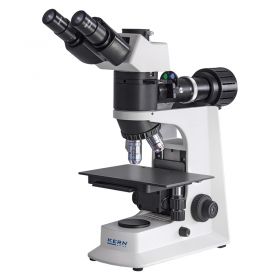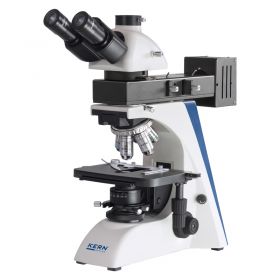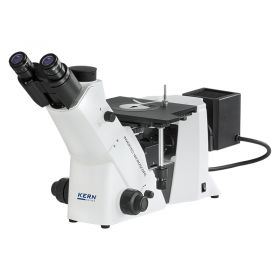Price
1712.50
3239.90






Designed for looking at cross-sections of metal targets, the Metallurgical Microscopes are typically inverted. They employ high-resolution objective lenses with very short working distances.
The main components of a metallurgical microscope are the optical system and the illumination system. The optical system typically consists of an eyepiece lens, a relay system, and an objective lens. The illumination system prevents glare from light bouncing off the surface of the sample, it consists of a high-intensity light source, condenser lenses, an aperture diaphragm, a plane glass reflector, and coloured or polarising filters.
Whether optical or digital, metallurgical microscopes can be used in virtually any industry or field of study that must observe glossy metal surfaces. These include metallurgy, mineralogy, and gemology. Manufacturers also utilise digital or optical metallurgical microscopes to inspect materials and components for signs of defects or wear.